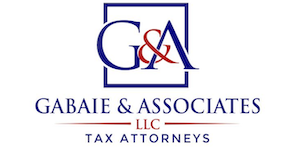Do you owe money to the IRS? Are you struggling to find a way to pay the amount you owe? Contact the tax attorneys at Gabaie & Associates, LLC to find out if you may be eligible to participate in a special financial hardship program. In some cases, the IRS may agree to classify your debt as “Currently Not Collectible” (CNC) and agree to temporarily stop collection efforts. This can allow you to delay your repayment until you are in a more financially-stable situation.
Qualify For CNC With a Demonstrable Financial Hardship
The IRS will usually go to great lengths to collect any back taxes you owe. In some cases, they may even place a lien on your property and/or seize your assets. If you have some disposable income you may be able to negotiate an installment payment plan with the government to satisfy your unpaid tax liability over an extended period of time. What happens, though, if your income only covers your basic living expenses and does not leave you with any money to pay the IRS? If this is the case, you can request to have your account placed in Currently Not Collectible status.
Whether or not you qualify for the program will require an assessment of your income and expenses by the IRS. The agency may agree to place your account in Currently Not Collectible status if:
- You have no significant assets, and
- Collection efforts would create a hardship and prevent you from covering necessary living expenses.
Pros and Cons of the IRS Financial Hardship Program
Just as with any other IRS program, there are benefits and drawbacks to having your tax account placed in Currently Not Collectible status.
Benefits of Currently Not Collectible Accounts
1. Room to Breathe
When the IRS agrees to place your account in Currently Not Collectible status you get a chance to breathe and not worry about IRS collection efforts. While your account is in CNC the agency will not seize your assets or demand that you pay them anything. This can allow you to focus your hard-earned money on the everyday cost of living.
2. Statute of Limitations
The IRS generally has a period of 10 years to collect taxes once they are assessed. While there are a few exceptions to this rule, they are few and far between. This statute of limitations is not extended when your account is in CNC status. You may be able to avoid repayment if your financial hardship lasts for a substantial period of time.
Drawbacks of Currently Not Collectible Accounts
1. Interest and Penalties
Interest and penalties will continue to accrue while your account is CNC. This means that your tax bill will be even greater once you are removed from Currently Not Collectible status.
2. Refund Offsets
When your account is in CNC status you'll still be required to file your annual tax returns. If you are entitled to a refund, you can expect for the IRS to take it. The refund amount will be used to offset your existing tax liability.
3. Tax Liens
While the IRS will not levy (or seize) your assets during CNC status, it may still place a lien on your property. This lien is basically a way for the government to make sure that it recoups some of your unpaid tax liability. It is important to understand that tax liens can negatively affect your credit score.
Experienced Maryland Tax Attorneys
Do you have an unpaid tax liability, but find that it is difficult to make ends meet? Contact Maryland tax attorney Juda Gabaie to find out if you may qualify for an IRS financial hardship program. Placing your debt in Currently Not Collectible status can help to take the pressure off while you get back on your feet. Call Gabaie & Associates, LLC today to request a free consultation and learn more about how we can help you with your tax issues.
